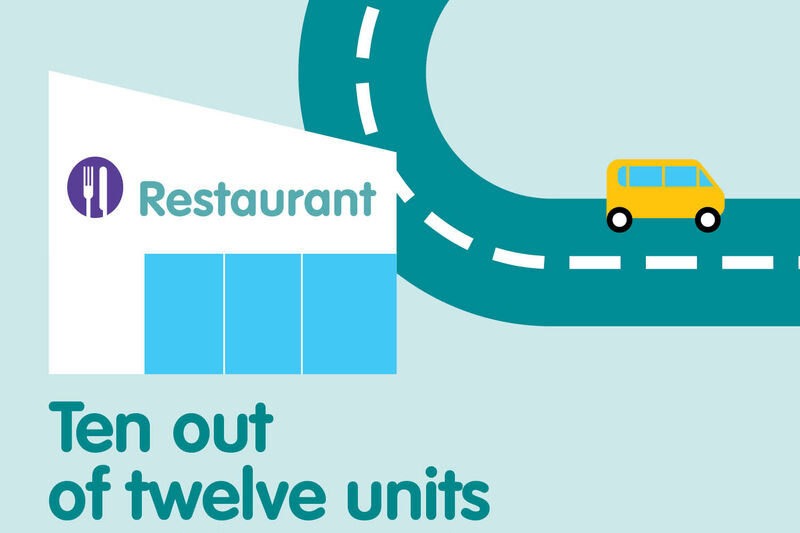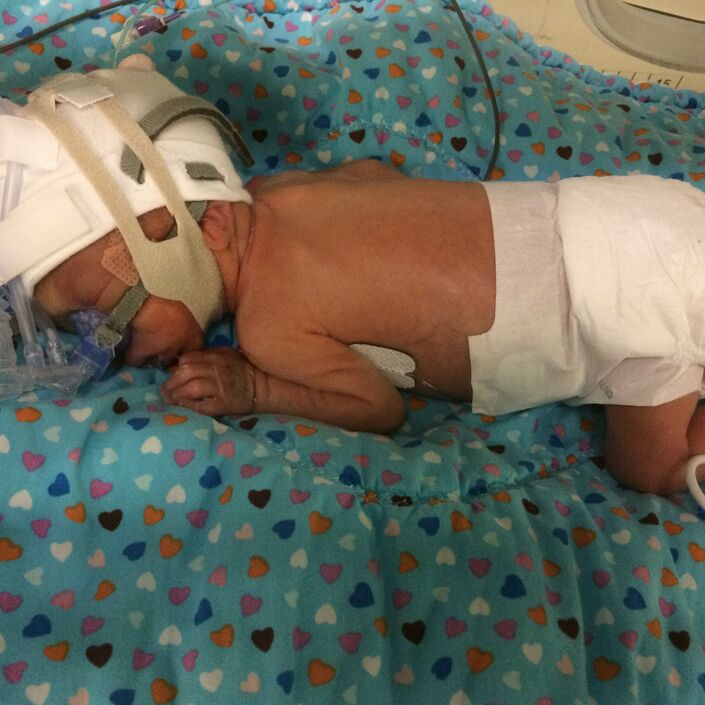Mark Griffin is the Labour MSP for Central Scotland. He has written this blog post in support of Bliss Scotland’s campaign to highlight the costs faced by families with a baby on neonatal care, following his own experiences.
As part of the campaign, Bliss Scotland is calling for urgent intervention from the Scottish Government to provide financial support for parents who are on neonatal units today, and who are facing increased costs as a result of their baby’s stay. Find out more and support the campaign here
We were told by doctors that having a premature baby was like a roller-coaster ride. However, nobody ever told us the cost of the ride.
My wife Stephanie gave birth to our youngest daughter in April this year. She was induced at 27 weeks after suddenly becoming very unwell with infection. Our baby defied expectations and weighed 530grams despite growth scans showing she was around 450grams - too small to survive.
During labour we’d been told to prepare for the worst, that even if the baby was born alive she’d be passed to my wife to hold on her chest as she took her first and last breaths. When she was born fighting and then whisked away to be stabilised, my wife and I sat on the hospital bed holding hands in complete shock.
Steph became very ill after the birth and my focus was entirely on her survival. We had been told often that Rosa’s chances were so slim that her having a shot at life almost never entered my thoughts until a day or so later, once it was clear that Steph would make it.
And so began our journey through neonatal care.
The first night Steph was well enough to see Rosa, I pushed her down to the ward in her wheelchair. The nurse taking care of our baby – Marie - was an angel. She explained the machines Rosa was connected to, how to change and feed her whilst she was in the incubator and brought her out so we could hold her for the first time. I’ll never forget how much happier Steph was as we left the ward. That’s the magic of neonatal nurses, they take a horrendous situation and make it something closer to bearable. They give you the space to parent, whilst taking the best possible care of your baby.
While you know you’re leaving your child where they need to be, walking away from them to come home every day is an agony I wouldn’t wish on anyone. Sitting at home trying to feign a kind of normality for our eldest daughter, when our other child was lying in an incubator attached to wires and monitors was a painful and surreal experience.
And yet we were amongst the lucky parents who could afford to see our child every day. Many parents we met just couldn’t find the money for a daily journey to hospital despite their small, often very sick babies requiring breast milk to give them the best shot at fighting infection and surviving.
These mums are forced into early, un-extended maternity leave and are on lower incomes than they’re used to. Mums of premature babies are also more likely to have had a c-section, and are unable to drive for weeks following the procedure. Public transport to hospitals is notoriously poor, and that’s even if mums are well enough to withstand such a journey. Expensive taxi journeys are often their only means of getting to their children.
Having a child in neonatal care means not knowing if they’ll survive to see another day. Missing a day can mean a fear that you’ve not seen them on what might be their last day on earth. The psychological impact of this on parents is devastating.
In total, Rosa had a 20 week stay in hospital. She endured cannulas in her tiny little arms, countless blood transfusions, hundreds of blood tests, pressure and oxygen therapy to keep her lungs open, a laryngoscopy and an operation to cut open her stomach muscle. She now weighs over 10lbs and is slowly outgrowing the physical effects of her prematurity. She is still tube fed, weighed weekly and attends many outpatient appointments. Looking at her, it’s hard to believe that she weighed just over 1lb at her lowest weight.
During those 20 weeks, we spent thousands of pounds on transport and food. We were fortunate enough to be able to do so. Many more parents aren’t, and a journey that is already traumatic in the extreme is made much worse because of financial constraints. This must change and I am glad that the Scottish Government are considering my calls for a family fund to support parents on low incomes whose babies are in neonatal units.
Voice your support for the campaign at here

